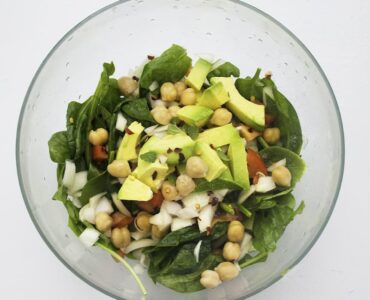A healthy diet is a diet that supports growth, normal development and vitality, promotes health and prevents disease. A healthy diet combined with regular exercise reduces the risk of chronic diseases and disorders such as obesity, cardiovascular disease, diabetes, hypertension and cancer.
Today’s science is conducting numerous studies to optimize diets for the prevention of major chronic diseases.
The first full-scale study to prove that a healthy diet can significantly reduce problems with cardiovascular disease, obesity and diabetes was the North Karelia Project, which began in Finland in 1973.
The main changes that led Project North Karelia to this result were:
Smoking cessation
change in the diet of the population:
reduction of butter consumption by 80%
Increase of vegetable oil consumption
Consumption of low-fat dairy products
Increase in the consumption of fruits and vegetables
Changes in the recipes of traditional dishes and teaching the population new cooking techniques (baking and boiling instead of frying)
Over 35 years, the mortality rate from cardiovascular diseases in the region of North Karelia has decreased by 7 times. This result formed the basis of the Europe-wide Health Strategy 2020.
Recommendations for a healthy diet
There is more or less universal advice developed by health organizations.
Limit your energy intake from fats: 2/3 of fats should be unsaturated, liquid fats. When consuming milk and dairy products, give preference to products with reduced fat content.
Seek to increase the proportion of fruits, vegetables, whole grains, legumes and nuts in your daily diet. It is from these foods that you should get 50-60% of your energy.
Approximately one-third of the bread, cereals and flour in the diet should be micronutrient-enriched foods.
Limit the consumption of simple carbohydrates (sugar, honey, sweet fizzy drinks) – no more than 30-40 grams per day.
Limit the intake of table salt and use only iodized salt.
Try to provide your body with vitamins in physiological amounts, including antioxidants (vitamins A, C, E), folic acid. If your diet does not include enough vitamins from food, you can periodically take multivitamins and extra vitamin D.
A balanced diet is the basis of a healthy diet.
As a rule, a proper balanced diet is made taking into account the following recommendations:
Healthy cereals are buckwheat, rice, millet, wheat porridge or pasta from durum wheat, boiled in water. An average portion is 200 grams in boiled form. 1 to 3 times a week may be replaced by potatoes cooked with a minimum of oils and fats. One portion of cereals per day can be replaced by 30-40 grams of bread. It is preferable if you consume cereal or bran bread, Borodinsky bread is also useful. White rolls should be considered as a treat, and not as the basis of the diet.
Sources of protein are any meat, fish, cottage cheese, eggs, and cheese. Even if you are not losing weight, try to have two-thirds lean meat and other protein products and one-third fatty ones. This is important for the health of your blood vessels.
Fruit should be eaten without fail, preferably in the first half of the day. Even if at first your body “does not accept” them, with time you will learn how to choose those fruits, which will bring you benefits. Try to start by replacing dessert with fruit, and you are sure to be able to “make friends” with them.
With vegetables, another rule is important – remember that the same salad with mayonnaise and, for example, olive oil – two different dishes, control the use of fats, try to switch to vegetable oils.
The right diet for everyone
Start each day with a glass of clean water, which will normalize the metabolic mechanism and run the functioning of not only the gastrointestinal tract, but also the entire body. It is recommended to drink at least 1.5 liters of clean water per day.
It is very useful to eat porridge for breakfast, lunch should be as nourishing and varied as possible. Dinner should be as light as possible.
Important: The last meal should be taken 1.5-2 hours before going to bed. This will allow you to meet the next day awake, refreshed and rested.
You should have a balanced menu. However, it is not recommended to put strict limits, although it is also not worth to be strenuous in the consumption of sweets. In a proper diet should be sufficient protein, fats and carbohydrates. Be sure to eat fruits and vegetables.
In addition, it is necessary to make snacks healthy. Optimal analogues of sweets and fast food will be:
- candied fruits;
- honey;
- nuts;
- dried fruits.



